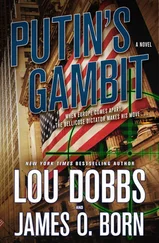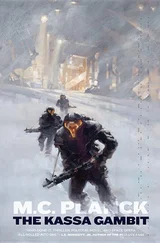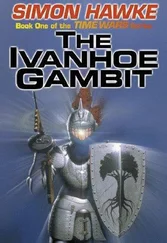She had eaten with him at high table for years, listened to his anecdotes of service in the Drowned March and at the Feathered Bridge between the two great continents of the world Makhtu. She knew that he liked to drink two sips from his own cup after the communal cup went around, and then to arrange his pickles or sesame spinach on top of his rice. She knew that he cared about putting things in their proper place. It was an understandable impulse. It was also going to get him killed.
Already she was rewriting the equations because she knew what his answer would be.
The sergeant reiterated his protest, stopping short of accusing her of heresy herself. Formation instinct should have forced him to obey her, but the fact that he considered her actions deeply un-Kel was enabling him to resist.
Cheris cut contact and sent another override. Lieutenant Verab’s acknowledgment sounded grim. Cheris marked Squadron Four outcasts, Kel no longer. They had failed to obey her, and that was that.
Disjointedly, the new formation pieced itself together and pressed forward. They were taking heavier fire now. Two trees exploded at the touch of Eelfire as Squadron Five passed them. A corporal was stapled to a hillside by the resultant lash of splinters. A soldier three paces to Cheris’s left fell out of formation and vanished in a vapor of blood and tatters. Kel Nikara, who had sung so well.
Squadron Four was already dissolving, but she had no attention to spare for it.
Cheris guided the advance from point to point. She adjusted the formation again by sending orders to individual soldiers, solving for intermediate forms in her head to keep the geometry within the necessary error bounds. The storm was dissipating: they were too close to the Eels. The next question was whether she could devise a formation that would give them better protection against the Eels’ invariant weapons, which would work in any calendar, now that the storm was no longer a factor.
They were outnumbered five to one, but the Eels didn’t have access to formations, so the Kel had a chance. Cheris was in a hurry, so a straightforward force multiplier was her best bet. More modifications. Her remaining soldiers knew to trust her. The soundstream reflected this. Eels , the stink of corpses , heavy fire from that copse , drumbeats . They were paying attention to the important things again.
To her relief, the force multiplier, adapted from One Thorn Poisons a Thousand Hands, could be linearized for use with her ad hoc formation. She and her soldiers were equipped with calendrical swords, ordinarily used for duels. Not her weapon of choice, but they were near the storm generator, which they were to take intact, and the general’s orders had been clear. The swords shouldn’t damage unliving objects, which was the primary consideration.
“Swords, now,” Cheris said.
The Kel unsheathed their swords, each tinted differently, blank bars of light. Cheris’s ran from blue near the hilt to red at the tip. As they closed with the enemy, numbers blazed to life along the lengths of the blades: the day and the hour of your death , as the Kel liked to say.
Except the date and time on Cheris’s sword was wrong. She wasn’t the only one who was dismayed. Maintenance , rather use my rifle , the dreaded calendrical rot . Not only were the numbers wrong, they jittered and sparked, snapping in and out of focus. A quick survey of her company indicated that everyone’s swords were having the same problem. That would have been bad enough, but the swords weren’t even synchronized.
“Sir, maybe another weapon –” Lieutenant Verab said.
“Continue the advance,” Cheris said. “No guns.” If the swords proved ineffectual, they would have to try something different, but the swords hadn’t sputtered out entirely. That gave her hope, if you could call it that.
At first it went well. For every sword-stroke, tens of Eels went down as lines of force scythed through their ranks. Cheris’s own swordwork was methodical, businesslike, the same way she dueled. One of her lunges pierced eight soldiers in the Eels’ ranks. She had always been good at angles.
The Kel formation held as they butchered their way through the Eels. The hills’ residual mist had a ruddy tint. Cheris made a point of noticing the Eels’ faces. They weren’t much different from the faces of her own soldiers: younger and older, dark skin and pale, eyes mostly brown or sometimes gray. One of them might have been Dineng’s brother, if not for the pale eyes. But the calendrical light made them alien, washed in shadows of indefinite color slowly becoming more definite.
They hit an unexpected snag as the storm generator came into view. It crouched on the rise of a stubby hill, visible through a transparent palisade. The generator resembled nothing so much as a small, deformed tank. Cheris asked for, and got, an assay of its approximate mass from one of the Sparrows. The answer made her bite her lip. Well, that was what the floaters were for.
More bizarre was the fact that the generator was undefended except by four Eel servitors. They were armed with lasers, but so far their fire hadn’t penetrated Kel defenses.
Cheris knew the current formation was losing effectiveness when the air went cold and gray. She was having difficulty breathing, and while she had an emergency air supply, they all did, she suspected this was just the beginning. Sure enough, it also became harder and harder to move.
Her first attempts at repairing the formation only resulted in a colder wind, a grayer world. Gritting her teeth – winter , entropy , it was time to get out but they were so close – she tried another configuration. It was hard to think, hard to make herself breathe. She thought she heard the song of snow.
“I need your computational allocations,” Cheris told her lieutenants. They were so close to the weather generator, and the Eels were broken and peeling away behind them. They just had to grab the wretched thing and hold on until pickup arrived. But to hold it they had to have a working formation. It was enough to make her long for the days of straightforward bullets and bombs.
She liked the thought of stripping her soldiers’ computational resources as much as they did, which was to say not at all. But they weren’t in camp, where they could instantiate a more powerful grid. They had no access to the larger, more powerful grid of a friendly voidmoth transport or a military base. She had to use the field grid because it was all they had.
Cheris gave her company a second to understand what was going to happen, then diverted their allocated resources to herself. She ignored the protests, most reflexive, some less so: can’t see , lost coordinates , it was so cold , a scatter of profanities. Verab was saying something to the other lieutenants, but hadn’t flagged the conversation for her attention, so she assumed he’d take care of it.
She formulated her question so a computational attack might give her an answer in a reasonable amount of time. The company’s grid was not sentient in the way of military-grade servitors, but if you knew how to talk to the system, it was capable of nuanced responses. As the world faded toward black, the grid informed her that she should proceed by a particular series of approximations. She authorized the computation and added some constraints designed to speed the exploration of likely solutions.
The problem was easy to see: not only did the storm generator rely on heretical mechanics, which also explained the weather-eaters’ difficulties, it was itself a disruption to the high calendar. Cheris wasn’t looking forward to reporting this to her superiors.
Читать дальше












